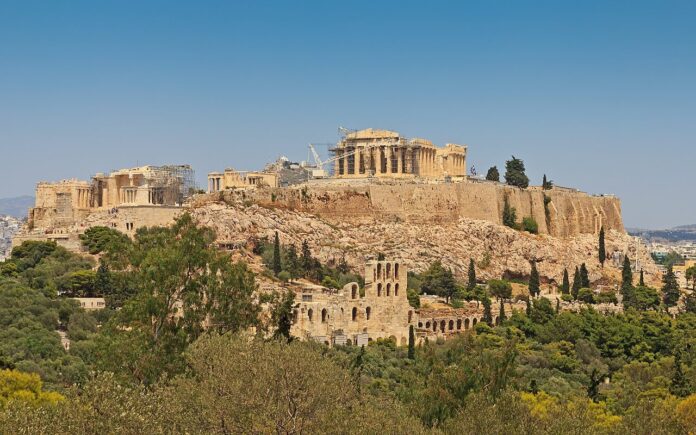
The Radboud University Nijmegen (RU) and the Netherlands Institute at Athens (NIA) under the auspices of OIKOS organize a postgraduate methodological intensive course in numismatics. This course is part of the joint numismatic project taking place every year, once in Athens, once in Rome (with the KNIR).
This nine-day course is primarily concerned with Greek numismatics by addressing questions of method, history, archaeology, and economy. Students will be introduced to the main coin productions of the Greek world from the birth of coinage to the Roman conquest (including the Roman Provincial coinages considered, in many respects, as Greek coinages as well). Special focus is given to questions of:
- Methodology: from the ore and the mine to the mint; how blanks and coins were produced; how coins were distributed to end-users and did they circulate; in which way hoards have been created and what conclusions can be drawn from their study as related to coin circulation and levels of monetization; what historical information do we get from excavation coins both in micro- and macro-contextual levels.
- Quantification: how many coins have been produced per die, what the die study is, levels of monetization of a given economy, statistical models for accessing monetary analyses and quantifications.
- Long-term economic approach, such as the velocity of coin circulation or the ratio between monetized and non-monetized wealth based on the specialization of the two main tutors of the course.
Historical questions will also be addressed, since this course is meant to be an introduction to both Greek numismatics and numismatics as a science as well. The general historical context will be addressed for every coinage under study, while questions of iconography, of messages transmitted by coins, notions of targeted audiences will also be considered.
All courses and presentations will be in English. PhD students and (research) master students (RMA) will be admitted to the course based on their academic background and motivation. A full program of the courses and visits to Athenian numismatic collections and archaeological sites will be communicated to the successful candidates once the selection process comes to an end. The course is registered at the Radboud Universiteit Nijmegen (LET-HLCS-NK01-2020- PER_1-V); this means that student from other Universities (both OIKOS related and international Universities) will need to be enrolled as RU students through the RU administration. The course is credited with 5 ECTS (140 hours), to be considered as follows:
- 3 ECTS for participation to seminars, practical exercises, excursions. An active participation of the students is expected (84 h);
- 2 ECTS for preparing and presenting an individual assignment (56 h).
The assignment will be decided by the tutors based on the students’ on-going research in the framework of their master and/or PhD thesis. This work (max. 5,000 words long) is meant to examine both the ability of students to address numismatic questions and their level of
mastering the relevant bibliography and numismatic tools. The preparation for the assignment should already start before the course and a short bibliography will be addressed to the successful candidates in due time.
Applications – a letter of motivation, a CV, and a recommendation letter by their supervisor (to be completed by an official grades’ report for Research Master students) – should be sent to the organizer (Prof. Dr Panagiotis P. Iossif) via e-mail with the mention “Numismatic seminar: Application”. The deadline for applications is Friday, April 24th 12 am.
Only a maximum of 10 (ten) students will be selected, a number imposed by the capacities of the Netherlands Institute at Athens’ (NIA) facilities. The course is open to all students from the fields of humanities and classics; six positions are reserved to OIKOS related Universities (Dutch Universities and Ghent); the remaining positions are for students from other Universities.
The seminar will take place at the NIA, at the foot of the Acropolis (Makri 11, GR-117 42, Athens) and accommodation will be offered by the NIA to all successful candidates, as well as free access to the main Athenian libraries and passes to Museums and archaeological sites.
Students will have to pay an inscription fee of 150 € for registration to the course when in Athens.
Visit the website of the Netherlands Institute at Athens for more information or contact Prof. Dr Panagiotis P. Iossif via e-mail.


